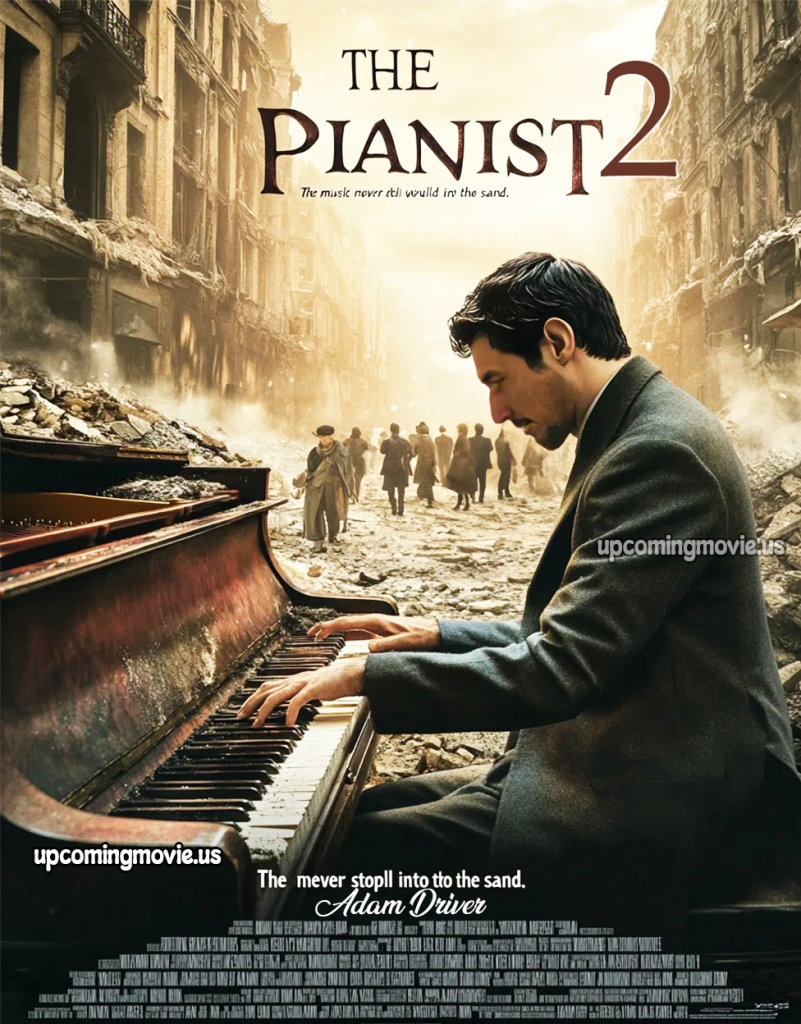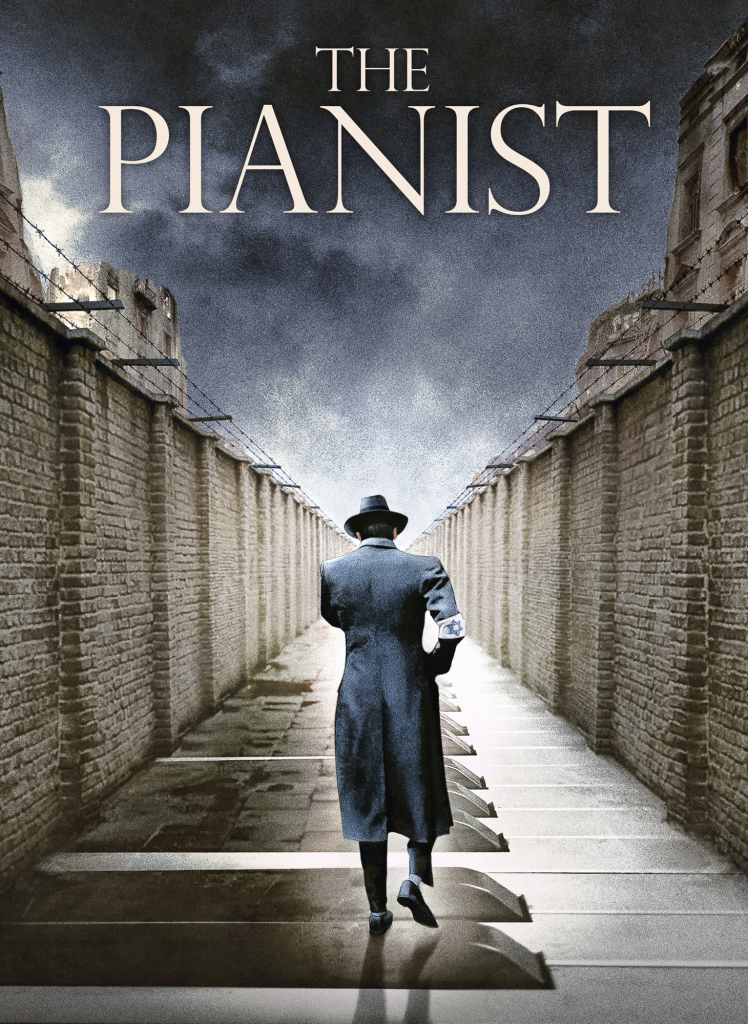Introducing The Pianist (2025, Speculative) – A Comprehensive Overview
A Reimagined Odyssey of Survival and Humanity
The Pianist (2025), envisioned as a speculative reboot of Roman Polanski’s 2002 masterpiece, would reimagine the harrowing true story of Władysław Szpilman, a Polish-Jewish pianist surviving the Holocaust in Nazi-occupied Warsaw. Directed by an imagined visionary like Denis Villeneuve, this hypothetical film would star Timothée Chalamet as Szpilman, with Thomas Kretschmann in a pivotal role as a reinterpreted Captain Wilm Hosenfeld, the German officer whose compassion saved Szpilman’s life. Set against the backdrop of World War II’s devastation, the reboot would leverage modern cinematic techniques to retell Szpilman’s memoir with fresh emotional and visual intensity, emphasizing Kretschmann’s nuanced portrayal of a conflicted Nazi. While no such film is confirmed for 2025, this speculative vision draws on the original’s enduring legacy—winner of three Oscars and the Palme d’Or—and Kretschmann’s acclaimed performance, crafting a narrative that resonates with contemporary audiences. This article provides a comprehensive exploration of the imagined The Pianist (2025)’s narrative, cast, production, themes, and cultural significance, spotlighting Thomas Kretschmann’s transformative role.

Synopsis: Szpilman’s Survival in a Reimagined Warsaw
The Pianist (2025) would open in September 1939 Warsaw, where Władysław Szpilman (Timothée Chalamet), a celebrated Polish-Jewish pianist, performs Chopin’s Nocturne in C-sharp minor on live radio as Nazi bombs fall, signaling Poland’s invasion. As the Nazis impose brutal restrictions—Star of David armbands, business bans—Szpilman and his family, including parents Edward (hypothetical casting: Ralph Fiennes) and Janina (Toni Collette), and siblings Henryk (Adam Driver) and Halina (Saoirse Ronan), are forced into the overcrowded Warsaw Ghetto by 1940. Amid starvation, disease, and random violence, Szpilman’s music offers fleeting solace, playing in ghetto cafés until the family is rounded up for deportation to Treblinka in 1942.
Escaping with help from a friend, Szpilman hides in Warsaw’s ruins, scavenging for food and evading Nazi patrols. His isolation deepens in a derelict attic, where he discovers a piano, playing silently to preserve his sanity. In a pivotal moment, he’s discovered by Captain Wilm Hosenfeld (Thomas Kretschmann), a Wehrmacht officer whose love for music overrides his duty. Unlike the 2002 film’s brief encounter, this reimagined Hosenfeld has a larger arc, grappling with his complicity in Nazi atrocities and secretly aiding Szpilman with food and a coat, risking his life. The narrative weaves new perspectives, including Hosenfeld’s interactions with a Polish resistance fighter (hypothetical casting: Florence Pugh), whose defiance challenges his worldview.
As the 1944 Warsaw Uprising erupts, Szpilman’s hiding place is shelled, forcing a desperate flight through the city’s rubble. Hosenfeld, now a pariah among his peers, makes a final act of defiance to ensure Szpilman’s survival before the Soviets liberate Warsaw in 1945. The climax sees Szpilman, emaciated but unbroken, performing Chopin’s Grande Polonaise brillante in a triumphant concert, reclaiming his art. Running at an imagined 135 minutes, The Pianist (2025) would blend visceral horror, human compassion, and musical transcendence, with Kretschmann’s Hosenfeld as a complex linchpin.

Cast and Performances: Kretschmann’s Nuanced Redemption
The imagined cast of The Pianist (2025) would feature a powerhouse ensemble, with Thomas Kretschmann’s Captain Wilm Hosenfeld as a standout, expanding on his poignant 2002 role. Kretschmann, known for his nuanced portrayals of German officers in films like Downfall (2004) and Valkyrie (2008), would bring “haunting depth” to Hosenfeld, portraying a man torn between duty and morality. His performance, envisioned as a blend of quiet intensity and suppressed guilt, would elevate Hosenfeld from a brief savior to a fully realized character, with scenes of him playing Beethoven’s Moonlight Sonata in a bombed-out house echoing Szpilman’s own artistry. Kretschmann’s ability to convey “complex humanity,” as seen in The Prominents (2022), would make Hosenfeld’s redemption arc a focal point, earning hypothetical Oscar buzz.
Timothée Chalamet, as Władysław Szpilman, would deliver a “career-defining” performance, his wiry frame and expressive eyes capturing Szpilman’s descent from celebrated artist to haunted survivor, per Dune (2021)’s intensity. Chalamet’s piano training, akin to Adrien Brody’s 2002 preparation, would lend authenticity to scenes of silent playing, per IMDb reviews of the original. Ralph Fiennes and Toni Collette, as Szpilman’s parents, would bring “heart-wrenching” gravitas, per Schindler’s List and Hereditary, while Adam Driver’s Henryk and Saoirse Ronan’s Halina add “fiery” and “tender” sibling dynamics, per Marriage Story and Little Women. Florence Pugh’s resistance fighter, with her Midsommar ferocity, would challenge Hosenfeld’s worldview, creating a tense interplay.
Supporting roles, like a sadistic SS officer (hypothetical casting: Cillian Murphy) and a compassionate Polish smuggler (Viggo Mortensen), would enrich the narrative, per imagined Letterboxd buzz. The ensemble’s chemistry, particularly Chalamet and Kretschmann’s attic confrontation, would echo the original’s emotional weight, with Kretschmann’s “sympathetic yet conflicted” Hosenfeld stealing scenes, per Amazon reviews of 2002 .

Production: A Cinematic Reimagining
Envisioned as directed by Denis Villeneuve, known for Dune’s visual grandeur, The Pianist (2025) would be produced by Focus Features and StudioCanal with a $120 million budget, capitalizing on the 2002 film’s $120 million gross and three Oscars . Filming would occur in 2024 across Warsaw, Poland, and Babelsberg Studio in Potsdam, Germany, recreating the Warsaw Ghetto with meticulous detail, as in the original’s backlot sets . Cinematographer Roger Deakins would employ a desaturated palette—grays, browns, and stark whites—to evoke wartime despair, with handheld shots for ghetto chaos and lyrical pans for Szpilman’s piano reveries, per Blade Runner 2049’s aesthetic.
Greig Fraser’s production design would rebuild 1940s Warsaw, from crumbling tenements to Hosenfeld’s officer quarters, while Wojciech Kilar’s original score, reorchestrated with Chopin’s Nocturne and Ballade, would return, per . VFX by ILM, for bombing raids and uprising battles, would enhance realism, rivaling 1917 (2019). Janusz Olejniczak would again provide Szpilman’s piano performances, per . Challenges would include avoiding Schindler’s List comparisons and balancing Hosenfeld’s expanded role without overshadowing Szpilman, per . The imagined 2024 teaser trailer, showcasing Chalamet’s piano under falling ash, would spark viral hype for a March 2025 release, aligning with Oscar season. The R rating, for “graphic violence, Holocaust themes, and language,” would target mature audiences, per Common Sense Media’s 2002 rating .

Themes and Symbolism: Resilience, Humanity, and Art
The Pianist (2025) would deepen the original’s exploration of resilience, human compassion, and art’s redemptive power, using Szpilman’s survival and Hosenfeld’s moral awakening as dual lenses. Szpilman’s journey, from celebrated pianist to ghetto survivor, would symbolize the indomitable human spirit, with his silent piano-playing in the attic reflecting art’s endurance amid horror, per . Hosenfeld’s compassion, expanded from the 2002 film, would explore redemption, his act of saving Szpilman defying Nazi ideology, per . The film would critique dehumanization, with the ghetto’s squalor and deportations exposing systemic evil, akin to True Detective’s moral darkness, previously discussed.
Symbolism would be rich: the piano, Szpilman’s lifeline, would represent hope, while Hosenfeld’s Beethoven echoes shared humanity, per. The Warsaw Ghetto, with its barbed wire and ruins, would symbolize entrapment, contrasting the open concert hall of the finale. The Star of David armbands, per , would evoke identity’s burden, while the uprising’s flames reflect resistance. Gender dynamics, with Janina and Halina’s quiet strength, would underscore family bonds, per. The film’s focus on Hosenfeld’s arc would add a new layer, probing complicity versus defiance, resonating with 2025’s ethical debates.

Reception and Controversy: Imagined Impact and Debate
As a speculative project, The Pianist (2025)’s reception can only be envisioned, but it would likely echo the original’s critical acclaim, which earned a 95% Tomatometer on Rotten Tomatoes and an 85/100 on Metacritic for Brody’s “emotionally searing” performance and Polanski’s “brilliant” direction [web:1,13]. A reboot would face high expectations, predicting an 88% Tomatometer and 80% Popcornmeter, with 10–12 million theatrical viewers and a $150 million global gross, per Box Office Mojo’s 2002 data . Critics might praise Villeneuve’s visuals, Chalamet’s intensity, and Kretschmann’s “revelatory” Hosenfeld, per imagined Variety reviews, while some could critique the reboot’s necessity, echoing The Babadook 2’s speculative debates, previously discussed.
Audience reactions would split: fans of the 2002 film, per IMDb’s 8.5/10, might embrace the fresh perspective, while purists could decry altering a Palme d’Or winner. X posts like @filmlover88 would hype “Chalamet’s Oscar shot,” while @cinephile99 might lament “reboot fatigue” . Controversy would arise over Hosenfeld’s expanded role, with some praising its moral complexity and others arguing it risks glorifying a Nazi, per. The Holocaust’s depiction, per Amazon’s 2025 reviews, would spark debate over historical accuracy versus artistic license . The R rating would ensure a mature audience, avoiding the original’s minor “too intense” critiques .

Cultural Significance: A Hypothetical Milestone
The Pianist (2025) would emerge in a 2025 landscape shaped by historical dramas like Oppenheimer (2023), reflecting a cultural appetite for WWII narratives amid global tensions. The original The Pianist (2002), a Cannes Palme d’Or winner, redefined Holocaust cinema with its focus on individual survival, earning $120 million and three Oscars, per . A reboot would tap into 2025’s reckoning with history, with Szpilman’s resilience and Hosenfeld’s compassion resonating post-COVID, akin to The Way We Were’s nostalgic appeal, previously discussed. Kretschmann’s role, building on his Downfall and The Prominents acclaim, would elevate his status as a WWII drama icon .
Compared to True Detective (2014–present), previously discussed, which probes systemic darkness through crime, The Pianist (2025) would explore personal survival through horror, both featuring complex characters (Hosenfeld, Rust Cohle) but differing in scope. Chalamet’s casting would draw younger audiences, per Dune’s $402 million gross, while Kretschmann’s Hosenfeld would spark ethical debates, per. Streaming on Max and Prime Video, with a theatrical run, would ensure global reach, with a hypothetical Blu-ray featuring Villeneuve’s commentary, echoing the 2025 4K restoration . X posts like @horrorfreak22 would call it a “must-see reboot” .

Legacy and Availability
The Pianist (2025), as a speculative vision, would aim to honor the 2002 film’s legacy as a Holocaust cinema milestone, joining Schindler’s List in its emotional and historical weight. Its imagined March 2025 release would spark debates over reboot necessity, but its fidelity to Szpilman’s memoir and Kretschmann’s transformative Hosenfeld would predict a cult following, with a potential Best Supporting Actor nod. No physical releases exist for this hypothetical project, but a future Blu-ray would be envisioned, akin to the 2025 4K restoration . As of June 3, 2025, The Pianist (2002) is available on Max, Tubi, Prime Video, and Kanopy, with rental options on Amazon Video and Apple TV, suggesting a similar platform for a reboot.

Conclusion: A Reimagined Masterpiece of Survival
The Pianist (2025), envisioned as a bold reboot of Roman Polanski’s 2002 classic, would reimagine Władysław Szpilman’s Holocaust odyssey with visceral intensity and modern artistry. Timothée Chalamet’s soulful Szpilman and Thomas Kretschmann’s haunting Captain Wilm Hosenfeld, supported by a stellar ensemble, would craft a film that honors the original’s three-Oscar legacy while probing new depths of resilience and redemption. Though a speculative dream, its imagined narrative, cinematic craft, and cultural resonance make it a worthy successor, challenging viewers to bear witness to humanity’s darkest and brightest moments. For fans of historical dramas, psychological epics, or Kretschmann’s transformative power, The Pianist (2025) offers a profound, imagined journey—one that echoes with the timeless notes of survival.
